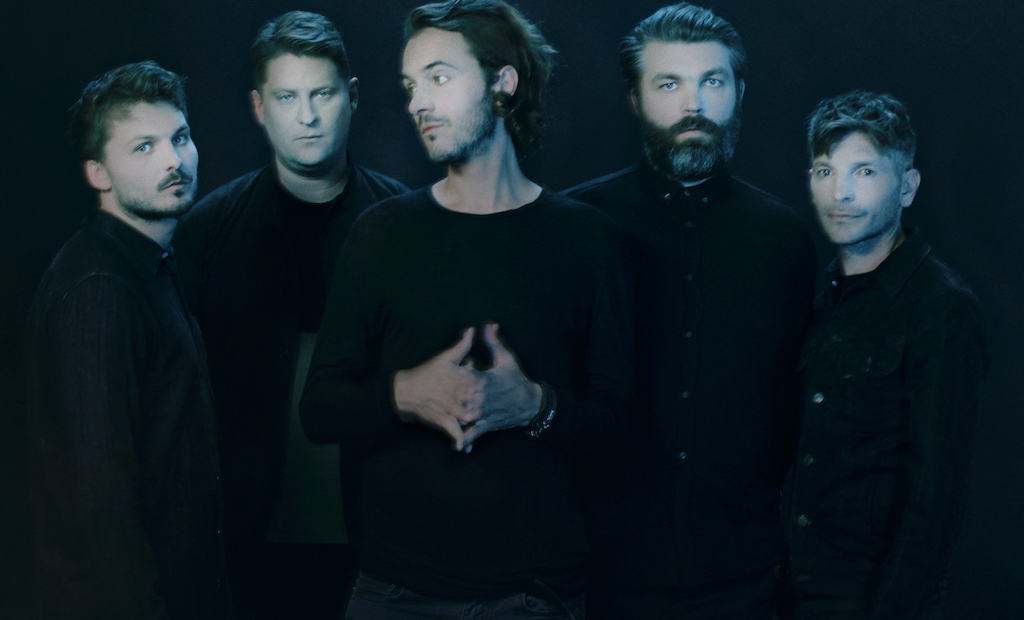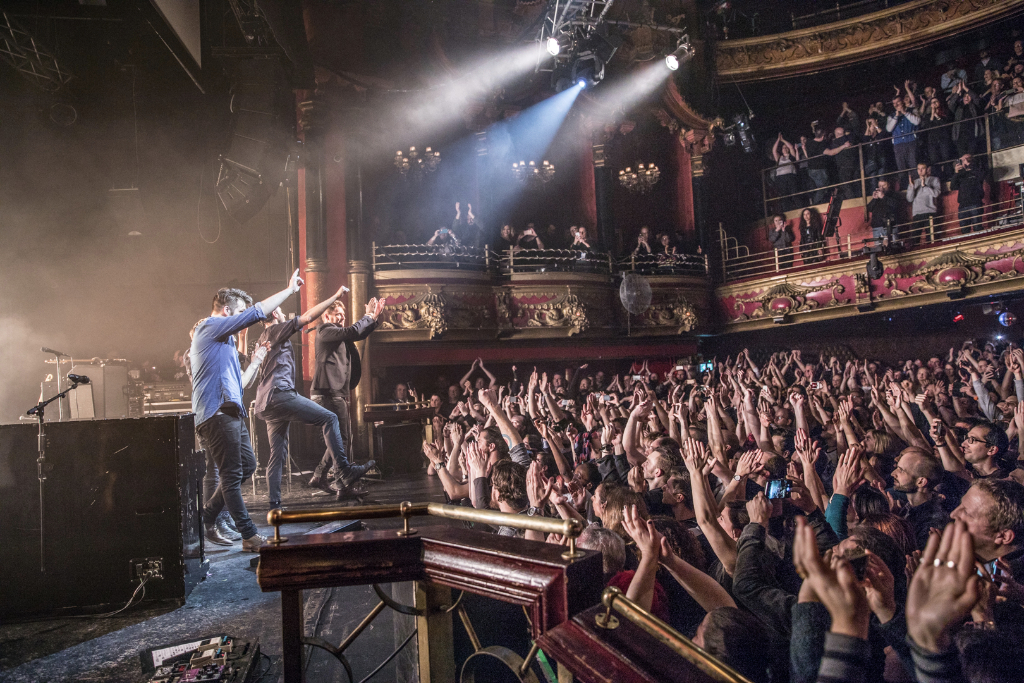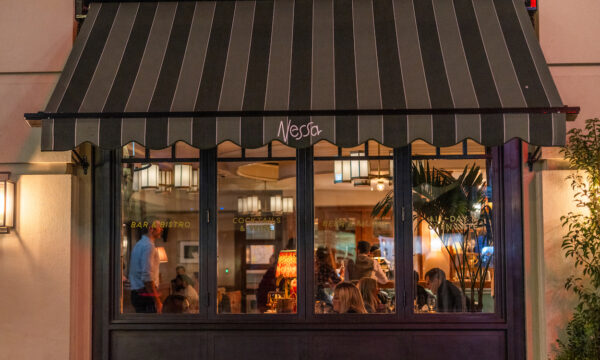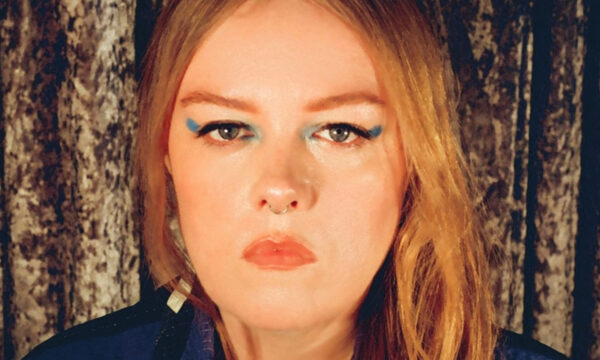“We have always wanted to do new things”: An interview with Russell Leetch of Editors

Earlier this month, rock band Editors announced their upcoming “best of” album Black Gold and a 2020 UK and European tour. The album features tracks from the band’s six studio albums alongside three new songs – Upside Down, Frankenstein and Black Gold. We sat down with Russell Leetch, the band’s bass guitarist, to discuss the album, Editors’ transformation since their beginning in 2002, and the exciting future in front of them.
What made Editors feel that now was the right time to make a “best of” album?
I think because we have done six albums. We did three with Chris Urbanowicz, our original guitarist, and three with the [new] additional guys that are in the band now, and it just seemed to sum up where we were. I mean, it’s quite good in showing the path of the band – you know, we have gone from Bullets to Frankenstein. So it’s quite an evolution of our sound, and we have always wanted to do new things. We have been asked to do it a few times before, but we thought six albums was a good amount now to try and sum it up.
You mentioned your original guitarist Chris. How do you feel his departure affected your sound?
Chris had his certain style, and he was very stubborn about not moving away from it, which is fine, but it kind of limits you as to what you can do. Then when the other guys came into the band, they were just very open with everything. Justin Lockey wasn’t going to try and be a replica of Chris’s guitar; he was just going to play what he personally plays. Then there is Elliott Williams, who as a composer and musician is just more into the electronic side of things. So yeah, it has changed quite a bit. I think the album that stands out as having less progression would be The Weight of Your Love, because we decided to do that as five musicians deliberately: that was all it was going to be, so it is a simpler record.
Your new sound is, as you say, more electronic compared to your past albums, so where do you feel your band now lies in genre? You have been compared to Interpol and Joy Division in the past.
Yeah, that one took a while to shake. You know, we have now done more albums than they have. I think that some songs on our first album could be compared to that post-punk vibe, but we are more of a rock band now. The third album kind of hinted towards a more Depeche Mode style. But then in the fourth, we stripped it back and had songs like Phone Book, which are more acoustic and show a different side to the band. Then the last album with things like Violence and No Harm show the more kind of dystopian, dark city way of life vibe we have.
You defined yourself as a rock band. How do you think the genre has changed?
The genre of rock? Oh, I don’t know, it’s still there. We played with The Cure over the summer, and they show how you can be a great band for years and years, they just get up and play. We went out on tour with REM, their last stadium tour in 2008, and again that showed us how you could gracefully be a band for a long time. So I don’t know if rock ever changes that much, it’s just the essence, isn’t it?
What made you decide to take Editors towards a more electronic sound?
We have always liked synthesisers. I think keyboards are generally more interesting to us than guitars – that’s not to say that we won’t make a guitar record again. There are also a lot of guitars on the last album, even big solos on things like Nothingness – they are just disguised. I think that when we start creating in a room and get beats and sounds on keyboards all together to work, it pleases us quite a lot.
Editors have been in the industry for a long time. How have you adapted to it and changed as a band?
I’m glad we came out when we did. It’s [now] definitely difficult for “guitar bands” as such, and I still think we are a guitar band – we always play with guitars, we always play as a band. But yeah, it has definitely shifted. We have aged, which is fine, and I’m glad we have stuck with it even when we have been through difficult times. I feel that we are more grateful for it now and appreciate things. I think when you come out as a new band, you’ve got a lot of testosterone and feel that everyone owes you rather than you owing other people. We are a lot more respectful.
What would you say has been the biggest change to the industry that you have seen?
Well obviously streaming wasn’t around when we first started. We still had CD sales of like £10 an album, so that’s changed a lot, that’s gone, which is fine. I’m totally fine with everything switching. Spotify is a brilliant system. Why would you not want the whole discography, if that’s what you want to do? But obviously, it makes it harder for new bands to stick. It seems like you have to have 200 million hits and be a Billie Eilish type of enigma for things to start happening.
Making six albums is a long time together. You must have some weird and interesting stories.
Yeah! You know, we have had some very interesting times. There have been a few stories along the way. I remember me and Tom went out in LA drinking (good song that, Drinking in LA) and ended up sitting on a table with Courtney Love. It was a bit bizarre considering I loved Nirvana when I grew up, and she was part of [their] story. I remember we were recording our second album and Michael Jackson was in the house up the hill from the studio. We never ever saw him, but we talked about him every day, so that was kind of weird.
Any favourite shows over the years?
There are bits along the way. You know, being a band, there is a progression from performing at Glasgow King Tut’s on the first tour, which was amazing because it was sold out and the reaction was so intense. It was like, [here] we are from Birmingham, and people have travelled all this way because they heard our music on the radio, they are liking it, and they are into it. You get such a buzz from that. And then by the end of the first album we were playing Brixton Academy, starting to do these big shows. We headlined festivals across Europe, we have played Glastonbury six times, and some of those have been absolutely magical. We have good memories from all those stages, through our progression.
The deluxe CD of your new album has some acoustic versions of your old songs, such as Smokers Outside the Hospital Doors. How do you feel the acoustic quality compliments your sound?
Well, they used to be written like that, with Tom Smith on an acoustic guitar. His technical and technological advancements have made his work a bit fuller in recent years, but when we initially write them, they are all like that. They are simply done with an acoustic guitar and piano, so they tend to work that way. We have always been a song band as well, whichever way we put our sound. They are still songs, so they can always be stripped back to the bare bones.
It’s a really interesting listen when you put the acoustic songs next to your new work like Frankenstein. What would you say you love about your new work?
We went to LA to work on [the tracks] with the help of a team that worked on our second album, so that was really enjoyable. You should always enjoy what you are working on. We have gone to some amazing places to make records – we did a full album in Nashville. Besides, who wouldn’t have a good time working in LA for two weeks in March instead of being in Brexit Britain for too long?
You have released music videos for both Frankenstein and Black Gold, which appear on this album. They all have an art, high-production quality to them, but both are very distinctive too. What is your favourite music video out of the two?
Most probably Black Gold – the director Rahi Rezvani did a really good job on that. But of recent times I always point people to the video for Barricades, which came out just before on the Blanck Mass Sessions version of Violence. It’s a well-done, animated idea, and I really love that one.
What has been your biggest challenge over the years to overcome?
Drinking too much? Haha. No, it must be the split with Chris. We had tried to make a fourth album with him. We had done a bunch of recordings that hadn’t worked out, spent 10 to 12 weeks in the studio, and they were not happy times. It was uncomfortable. It just got to the boiling point where something had to be done. When it was just myself and Ed [Lay] rehearsing in a room without Tom or Chris, it was a big decision to be made, because we didn’t want to continue like that. So we had to make the call and ask him to leave the band. I think that communication is just so important, it is important for everybody, it’s how you get things done. We have mouths to speak, and interaction between humans is how the world becomes a better place, and we have to do that in our little microcosm of a band.
This album shows your history, but also offers your fans a taste of things to come. So what’s next for Editors?
Obviously the big tour for next year, which we are excited about, going back to some of our favourite cities across Europe to play. It is going to be a fun time; we are going to enjoy that and then the summer. Then at the end of the year, we will probably look at starting a new record. Nothing has been discussed or done yet, but we will get itchy feet and want to do something. We have been a band for this long, so why not carry on?
Emma-Jane Betts
Photos: Nadav Kander (header), Filippo L’Astorina (live)
Editors’ new album Black Gold is out on 25th October 2019. For further information and tour dates visit the band’s website here.
Watch the music video for Frankenstein here:






















Facebook
Twitter
Instagram
YouTube
RSS